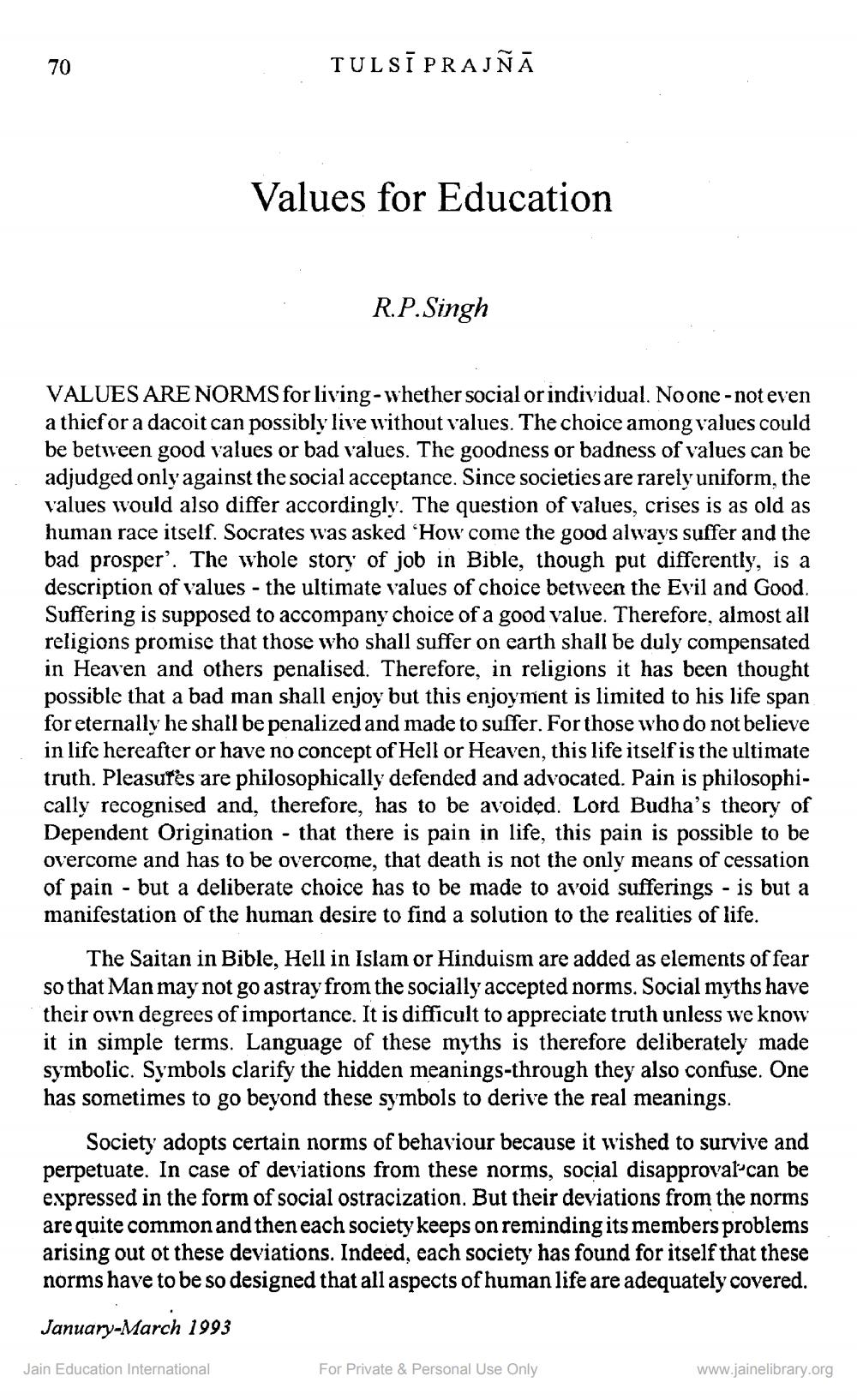________________
TULSI PRAJNĀ
Values for Education
R.P.Singh
VALUES ARE NORMS for living-whether social or individual. Noone - not even a thief or a dacoit can possibly live without values. The choice among values could be between good values or bad values. The goodness or badness of values can be adjudged only against the social acceptance. Since societies are rarely uniform, the values would also differ accordingly. The question of values, crises is as old as human race itself. Socrates was asked 'How come the good always suffer and the bad prosper'. The whole story of job in Bible, though put differently, is a description of values - the ultimate values of choice between the Evil and Good. Suffering is supposed to accompany choice of a good value. Therefore, almost all religions promise that those who shall suffer on earth shall be duly compensated in Heaven and others penalised. Therefore, in religions it has been thought possible that a bad man shall enjoy but this enjoyment is limited to his life span for eternally he shall be penalized and made to suffer. For those who do not believe in life hereafter or have no concept of Hell or Heaven, this life itself is the ultimate truth. Pleasures are philosophically defended and advocated. Pain is philosophically recognised and, therefore, has to be avoided. Lord Budha's theory of Dependent Origination - that there is pain in life, this pain is possible to be overcome and has to be overcome, that death is not the only means of cessation of pain - but a deliberate choice has to be made to avoid sufferings - is but a manifestation of the human desire to find a solution to the realities of life.
The Saitan in Bible, Hell in Islam or Hinduism are added as elements of fear so that Man may not go astray from the socially accepted norms. Social myths have their own degrees of importance. It is difficult to appreciate truth unless we know it in simple terms. Language of these myths is therefore deliberately made symbolic. Symbols clarify the hidden meanings-through they also confuse. One has sometimes to go beyond these symbols to derive the real meanings.
Society adopts certain norms of behaviour because it wished to survive and perpetuate. In case of deviations from these norms, social disapproval can be expressed in the form of social ostracization. But their deviations from the norms are quite common and then each society keeps on reminding its members problems arising out ot these deviations. Indeed, each society has found for itself that these norms have to be so designed that all aspects of human life are adequately covered.
January-March 1993
Jain Education International
For Private & Personal Use Only
www.jainelibrary.org




